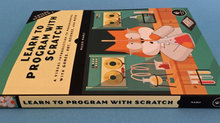|
Game characters are better when they gossip and lie
Nobody likes a gossip, expect when they're making games more real
Getting characters to lie, gossip, and manipulate could help to create more realistic video games, according to Jenny Brusk, a lecturer in computer science at the University of Skövde. Brusk has been working on models to introduce socially competent non-player game characters who can understand natural language, rather than characters using goal-driven dialogue where the player is limited to a number of predefined response alternatives. In order to create socially intelligent characters, Brusk has studied gossiping. "Gossip is a type of dialogue that defines our moral compass, and without it, we don't know what's socially accepted. Gossip is also a way to get to know each other, and it signals closeness. We learn to master social codes through gossip," she explains. Brusk's research is based on sociolinguistic science with complex dialogue systems. The dialogue models she has developed can be implemented using standard technology, meaning they could be implemented in today's games. Brusk has presented a number of ways to create NPCs or "embodied conversational agents" with the ability to manage social situations, varying characters' behaviour according to their perceived interpersonal relationships. To do this she introduced an algorithm for calculating the social threat presented by the person the character is speaking to. The model took into account the NPC's current emotional state and personality type. The idea of "threat to face" or threat to one's personal reputation was introduced as a mechanic. Brusk and colleagues have developed a method for managing NPC dialog through the creation of a dialog manager in State Chart XML, a newly introduced W3C standard. They built a trading model for a shopkeeper, which allowed for natural language negotiations. The plan is to introduce an emotional aspect into the model at a later date, perhaps influencing the price based on how happy or sad the shopkeeper is. Getting characters to gossip in video games is a bit more of a challenge as it requires a workable definition of gossip to provide a basis for computational implementation. Brusk and colleagues studied gossip in movies and TV shows to come up with a gossip dialog model. It starts with someone introducing an opinion about a third person that both participants know, there's then a reaction from the second person—positive or negative—which leads to either further evidence to support the initial opinion or a counter view, before the conversation is eventually wrapped up. In her doctoral thesis she concluded that in order for an NPC to be able to initiate gossip, there would need to be an assessment of the relationship between each participant in the gossip, the relationship between the participants and the potential target, the news value of the gossip story, and how sensitive the story is. The target must not be intimately related to any of the gossipers and the gossipers must also all be friends or acquaintances. "In worlds populated with virtual humans, their ability to gossip can be a useful asset for a human user in gaining information and establishing relationships that affect future actions," Brusk writes in her thesis. "An NPC capable of engaging in gossip conversations will be a resource for different types of useful information that otherwise would be difficult to access, such as cultural cues among members of a social group as well as tensions or conflicts between different group members." Combining the idea of "threat to face" with the gossip leads to NPCs making decisions about whether or not to gossip based on whether the gossip might backfire. The example Brusk gives is making sure the NPC can distinguish between "Bill (Clinton) has had a sexual relationship with Monica (Lewinsky)" and "Bill (our common friend) has had a sexual relationship with Monica (someone we mutually know who is not Bill's wife). The first piece of gossip about famous people causes little threat to the gossiper's social "face," but gossipers take social risks when talking about people they mutually know. "We would like our NPCs to have the ability to make this judgment in most situations, but occasional failures are acceptable as they would only make the NPC more human-like," her thesis explains. Brusk believes that this sort of approach could lead to new types of games, "perhaps focusing on social relationships, in which manipulations, gossip, and lies are examples of strategies that could be used in order to advance in the game". Source: ArsTechnica
Liked this? Share it!
|
We Share Stories Like this Every Day. Follow us to get your Daily Tech Recap!








Meanwhile, In Japan...
[Humour] 















|
| Recaply Copy |
|

